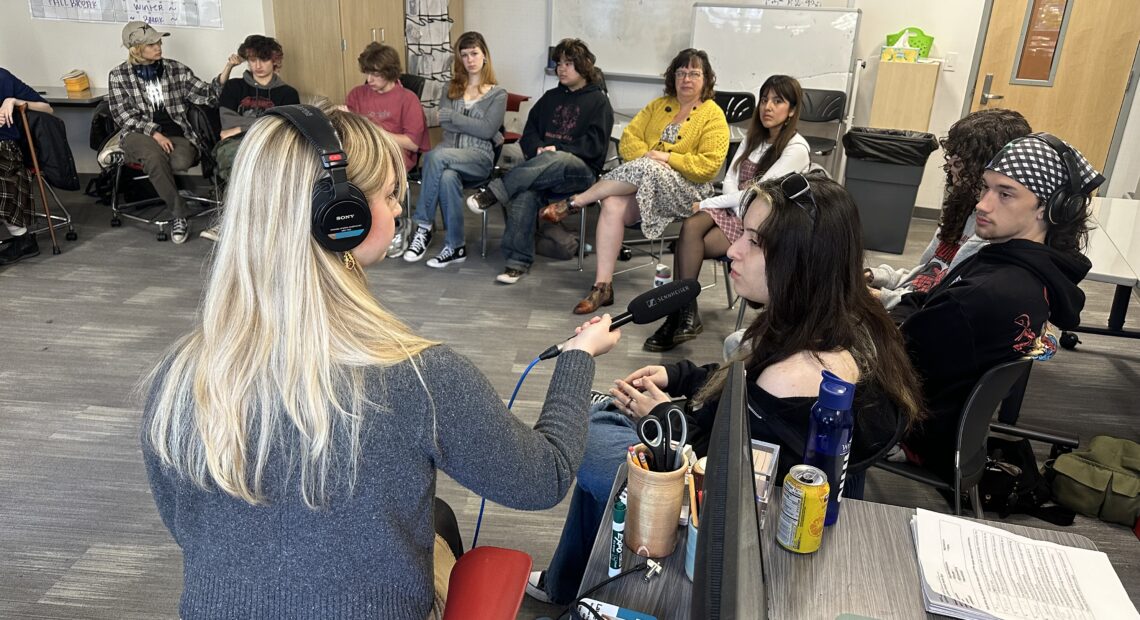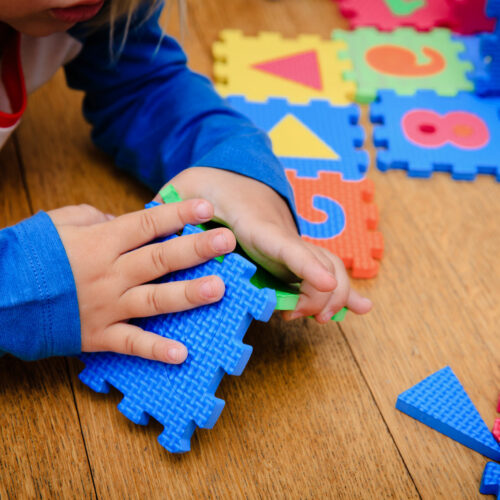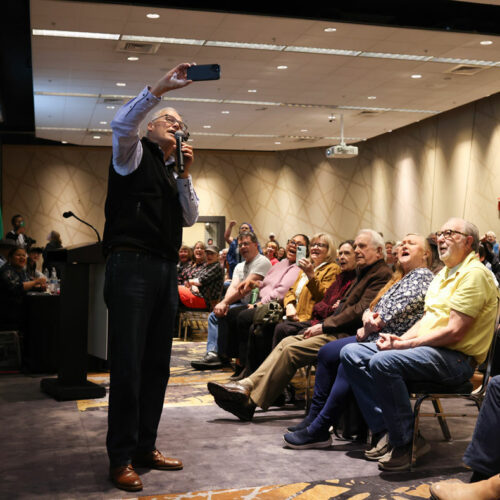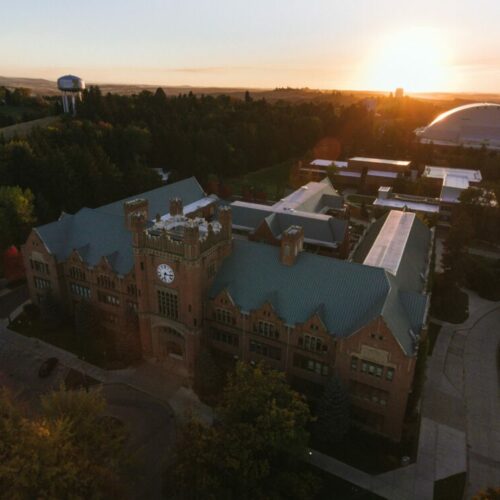
What issues matter most to young voters ahead of the election?
Read and Listen
(Runtime 3:58)
By Lauren Gallup and Phineas Pope
In high school classrooms and on college campuses, students learn about the U.S. system of governance and the country’s political history. This November, some get to make their voice heard in those systems for the first time as voters.
In the Northwest, the issues driving some of these voters vary; from social issues to economics to housing. Still, others are choosing not to vote.
NWPB visited a high school class in Tacoma to ask what some of the state’s youngest voters, and some not quite old enough to cast a ballot, are thinking ahead of the election.
Most of the students in the senior-level class at the Tacoma School of the Arts said they are registered to vote. People in Washington can pre-register starting at age 16, so that when they turn 18, they become active voters.
“I wish I heard more presidential candidates talking about Indigenous issues and poverty on reservations,” senior Eden Cavanaugh said. “I feel like that is never something that presidential candidates talk about, and land back movements are never really discussed.”
Multiple students shared that they feel candidates should address housing.
“There’s a housing crisis and here in Tacoma you see them building things, but then it’s so expensive that they’re not really helping people who are already here, who need the help,” senior Micah Larson said.
Lily Goff was one of the students who said they wished candidates would present solutions for people facing housing insecurity and homelessness.
“I wish they’d talk more about actually helping homeless people instead of just moving them around a lot and putting them in different places without actually giving them any sort of real safe shelter,” Goff said.
Others spoke about how access to reproductive health care is a crucial issue for them.
“I would have to say, probably, women’s rights, specifically, especially about their bodies and bodily autonomy, is a really big issue at the moment,” Cage Meade said.
Many of the students in the class spoke about their appreciation for protections for gender-affirming care and access to reproductive health care in Washington state. But, some of the students said that one day, they might move to a state with different laws, so it matters to them how the executive branch makes decisions on these issues.
Lucia Breneman said she is planning to go out of state for college.
“I’m not even looking or applying for colleges in Texas or Florida or places like that,” Breneman said, referring to states that have enacted strict or total abortion bans.
The students are learning about the different branches of the federal government in their civics class, which has helped them understand that power and decision making is divided, and not just in the hands of the executive.
T’Shayla Perea said she wishes voters would pay as much attention to other positions and initiatives on their ballots as they do the presidential race.
“I just wish that we were a little bit more educated with voting for other positions,” Perea said.
Breneman agreed.
“I wish that people paid more attention to state elections,” Breneman said. “For instance, voting restrictions, that’s controlled by the states now. So, if you pay attention and vote for people who you want in control of your state, that will give you more power in higher up elections as well.”
Washington voters will decide who will fill one U.S. Senate and several House seats in this election. There’s also state executive, legislative and judicial offices on the ballot.
NWPB also met with college students on the Palouse.
(Runtime 1:03)
“I think that you can’t really complain about issues that are happening in our country, if you … aren’t trying to change them. And one of the ways you can do that is by choosing to vote,” said Jack Adams, a 20-year-old student at the University of Idaho in Moscow.
Adams mentioned the ongoing conflicts in Eastern Europe and the Middle East when asked what issues were important to him in this election. As an International Studies major, Adams said he and his friends stay up-to-date with global politics.
Isabella Sabato is also a student at the University of Idaho.
“I think it’s very important, especially in this climate where there’s so many religions and anti-religious people kind of butting heads … I hope … with me voting, it can kind of help smooth things over,” Sabato said.
Sabato, 21, said issues driving her to vote include bans on abortion and lowering the costs of education and housing.
“I’m from Hawaii, so it’s been challenging to see the Native Hawaiian people no longer have access to affordable housing,” Sabato said.
While the majority of students who agreed to be interviewed said they would vote in this election, some said they will not, including 21-year-old Luke Ingham.
“I, ‘a’, don’t feel like as if I’m educated enough that I want to vote and ‘b’, that I always feel like it’s kind of, everyone’s like ‘Oh, it’s a lesser of two evils,’ and I don’t know if … I want to … register to vote, for that,” Ingham said.

Ballot boxes outside the Compton Union Building at Washington State University in Pullman, Washington. (Credit: Phineas Pope / NWPB)
Amina Hussein is a political science major at Washington State University in Pullman interested in politics. She said she surrounds herself with people who want to vote — and she’s also involved with encouraging voter turnout on campus.
“Me and other individuals have been helping students register to vote, whether that be on Terrell Mall, or just if they have any questions,” Hussein said.
For 21-year-old Daniela Barros, like many college students this year, this will be the first election she can vote in. Barros mentioned women’s rights issues as an important issue for her.
“That’s going to be of importance to me, that would directly affect me, and people that I care about,” Barros said.
In Washington state, voters between the ages of 18 and 25 make up just about 10% of registered voters, according to the Washington Secretary of State.
Editor’s Note: Morgen White contributed to this story.
















